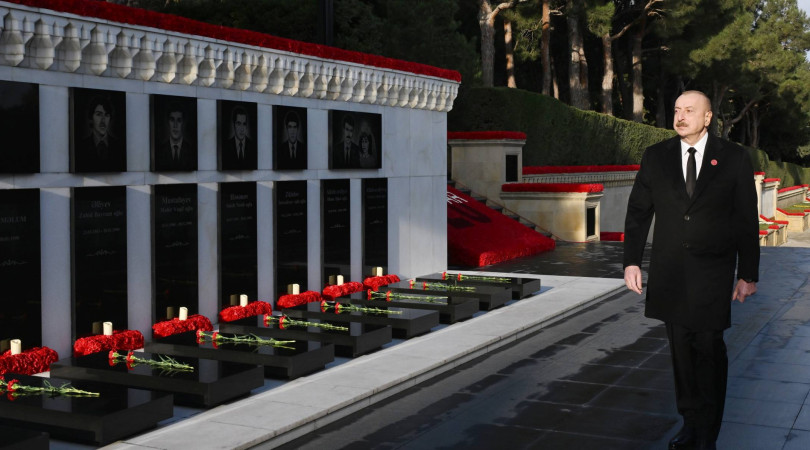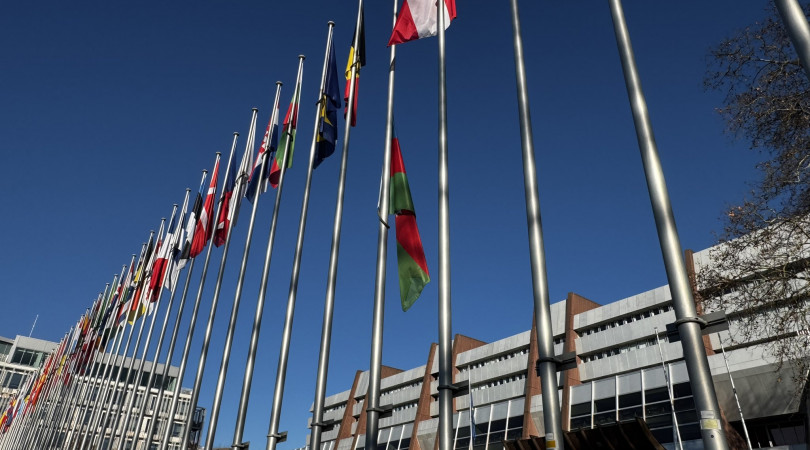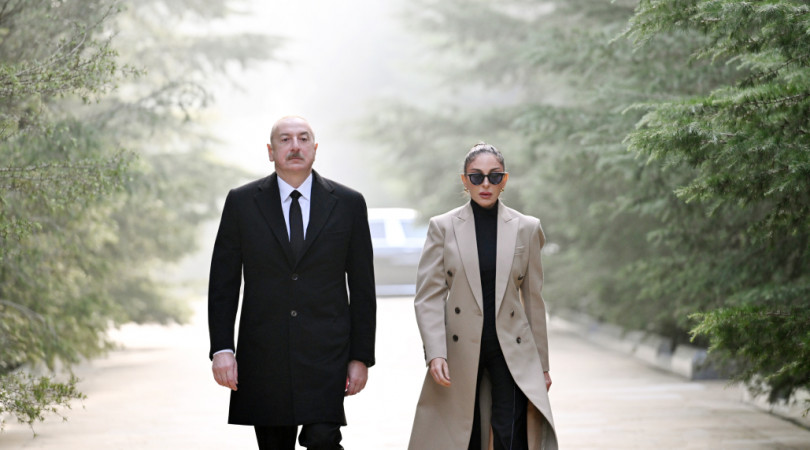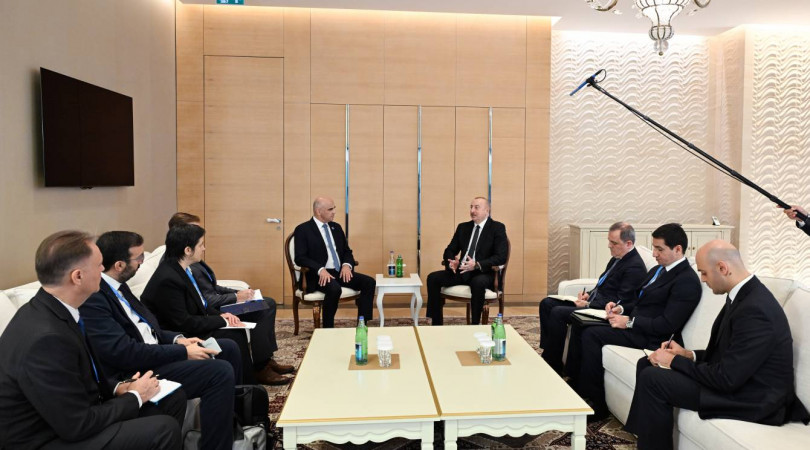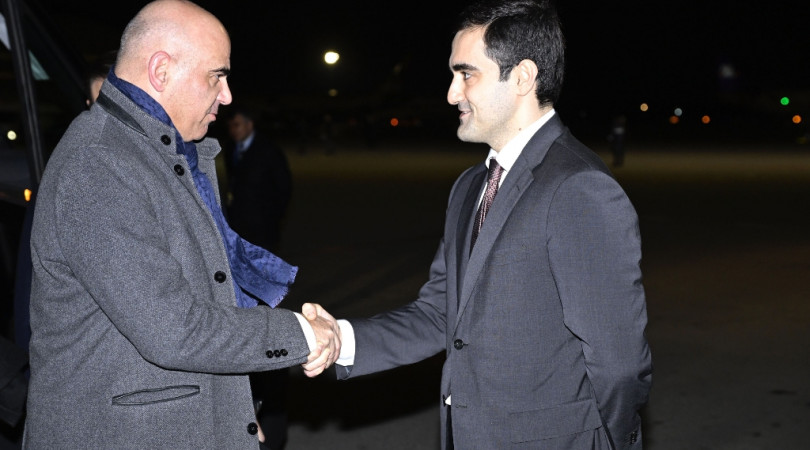Hikmat Hajiyev: Azerbaijan is ready for chairing Non-Aligned Movement in 2019-2022
Azerbaijan, a supporter of multilateralism and international cooperation, will chair the Non-Aligned Movement in 2019-2022, with international peace and security as the top priority issues, head of the foreign policy department, Presidential Administration of the Republic of Azerbaijan Hikmat Hajiyev told EURACTIV in an exclusive interview.
He spoke to EURACTIV’s Senior Editor Georgi Gotev. AZERTAC presents the full text of the interview.
-In the post-Soviet space, several “frozen conflicts” have subsisted, and some of them are not exactly “frozen” because weapons are used and people are dying. Nagorno-Karabakh is such a conflict. What is new, since Armenia has a new prime minister? Any hope for a positive development?
-On 11 November, the world marked the centenary of the end of the First World War. It must be noted with regret that today there are trenches reminiscent of World War I in Europe again along the occupied territories of Azerbaijan.
Therefore, I fully agree with you that those who call this conflict metaphorically “frozen” are wrong. Lessons learned from the First and Second World Wars are that the use of force against the territorial integrity and sovereignty of states have terrible consequences. Therefore, attempts to change the internationally recognized borders of states are inadmissible.
If Armenia’s new government intends to build a civilized state and provide a decent living for the Armenian population, it must comply with Armenia’s international commitments and withdraw its troops from the occupied territories of Azerbaijan as demanded by the four UN Security Council resolutions on this issue. Azerbaijani internally displaced persons (IDPs) should return to their homes and justice must be provided. Without justice, there is no peace.
Armenia should learn to live in peace with neighbouring countries without military aggression and territorial claims and cease its self-isolation. Thereafter, the military risk factor can be eliminated, the status-quo of occupation can be changed and opportunities for a political settlement of the conflict may arise.
By the way, the OSCE Minsk Group Co-chair countries [France, the Russian Federation and the United States] even at the level of presidents on numerous occasions underlined the necessity of changing the status-quo. This is our expectation from the new government of Armenia. It should not repeat the mistakes of the previous military junta regime.
Talks were held between the President of the Republic of Azerbaijan and the Prime Minister of Armenia on the sidelines of the CIS heads of state meeting in Dushanbe in September this year. As a result, Azerbaijan once again demonstrated its constructive position and strong determination to resolve the conflict through negotiations.
In Dushanbe, verbal agreement was reached to strengthen the ceasefire regime, to establish communications at low-levels and ensuring commitment to negotiations. After the elections in Armenia, Azerbaijan stands ready for substantial and intensive negotiations as proposed and supported by OSCE Minsk Group Co-chairs. But, unfortunately, contrary to Azerbaijan’s goodwill and constructive position, Armenia continues its illegal activities in the occupied territories of Azerbaijan, which are completely detrimental to establishing an environment conducive for negotiations.
-Can you give examples of activities by Armenia causing serious concern for the Azerbaijani side?
-Armenia pursues the policy of annexation of the occupied territories of Azerbaijan with illegal activities and in this way attempts to strengthen the status quo of occupation. Particularly disturbing is the settlement of Armenians from Syria to occupied territories and artificially changing the demographic situation in the seized lands.
According to the humanitarian law and Geneva Conventions, illegal activities in the occupied lands is forbidden. Exploitation of mineral resources of the occupied territories and their export without due diligence and transparency to OECD countries is yet another matter of serious concern. Armenia also destroys the centuries-old cultural heritage of Azerbaijani people in the seized lands. Some of them cannot be restored any longer.
Along with undermining the peace process, unauthorized visits to and illegal activities in the occupied lands of Azerbaijan are also the violation of collective rights of million more Azerbaijani IDPs and refugees who were ethnically cleansed from their homes.
-Azerbaijan is conducting a policy based on good relations with all major global players. But the relations between global players are worsening: EU-US relations have reached an all-time low, relations of the US with China are problematic, to say the least, the relations between Russia and the West are worrying. How do you see the world? What are the consequences for Azerbaijan, and what will be the role for Azerbaijan internationally?
-Rising tension and contradictions in international relations is a concern for Azerbaijan as well, which is the responsible member of the international community. Azerbaijan supports rule-based international political and economic order. Azerbaijan is a supporter of multilateralism and international cooperation.
We also are a staunch supporter of the reform and adaption of the universal institutions and tools to the realities of the modern times. Baku will chair the Non-Aligned Movement in 2019-2022. [The Non-Alignment Movement is an international organisation uniting 120 countries on the principles of non-participation in military blocs]. International peace and security issues are priority topics in the Agenda of the Non-Aligned Movement. Azerbaijan has strong will to contribute to the promotion of these goals during its chairmanship.
Azerbaijan takes distance from controversies and is trying to lead by examples of bilateral beneficial cooperation. Azerbaijan today plays a role of global security platform where parties with completely different agendas find common ground. In this context, it is worth mentioning regular meetings of NATO and Russia and United States and Russia top military leadership in Baku.
By the way, your question reminds me of the statement of President Ilham Aliyev at the North Atlantic Council. President Aliyev said: “We would like our friends to be friends among themselves”. This statement remains valid.
-How important is the Belt-and-road initiative for Azerbaijan? The new international Sea Trade Port in Alyat is certainly part of its vast mosaic. EU has some concerns and offered its response to the Chinese blueprint. What could be the winning receipt?
-Azerbaijan was historically located on the ancient Silk Road. The historical experience, the geopolitical location and the will to contribute global trade conditions Azerbaijan’s active engagement and contribution in building different models of connectivity. Today, Azerbaijan has the most up-to-date infrastructure in the region consisting of land, air, sea and railroad components of Silk Way.
The recently commissioned Baku-Tbilisi-Kars railroad is a vivid example to this end. Since its inception, Azerbaijan supports the One Belt – One Road (OBOR) initiative of China, as well as it welcomes EU’s concept of connectivity. Establishment of transport corridors does not just mean freight. Of course, it is more than that. As the ancient Silk Road shows, it is the collaboration and mutual enrichment of civilizations and cultures. With its modern infrastructure and regional outreach capacities, Azerbaijan contributes to linking Chinese and European markets along East-West corridor within the shorter and efficient time frame. It will generate more jobs, prosperity and stability. This is a winning recipe for all.
-Your country is close to Turkey and Iran both geographically and in many other ways. For the EU, it’s not always easy to work with such partners, who have their own geopolitical ambitions. Do you have some advice to offer?
-Relations with the neighbouring states are the priorities of Azerbaijan’s foreign policy. You have correctly noted that Azerbaijan has friendly and partnership relations with both Turkey and Iran. We cannot give advice. However, we can share Azerbaijan’s experience and lead by our own examples. Azerbaijan pursues a transparent, predictable and independent foreign policy. It does not interfere with the internal affairs of any state, and offers regional cooperation opportunities by finding common ground between its interests and interests of its partners.
We do believe that the best prosperity is the shared prosperity. As a result of which we contribute to building a peaceful and friendly neighbourhood. I can also add that Azerbaijan’s cooperation with Turkey and Iran, along with bilateral format, is developing on a trilateral basis and serves for the promotion of mutually beneficial regional partnership. Last but not least, based on the reciprocal good willing, shared interests and trust, it is possible to achieve successful models of bilateral cooperation.

